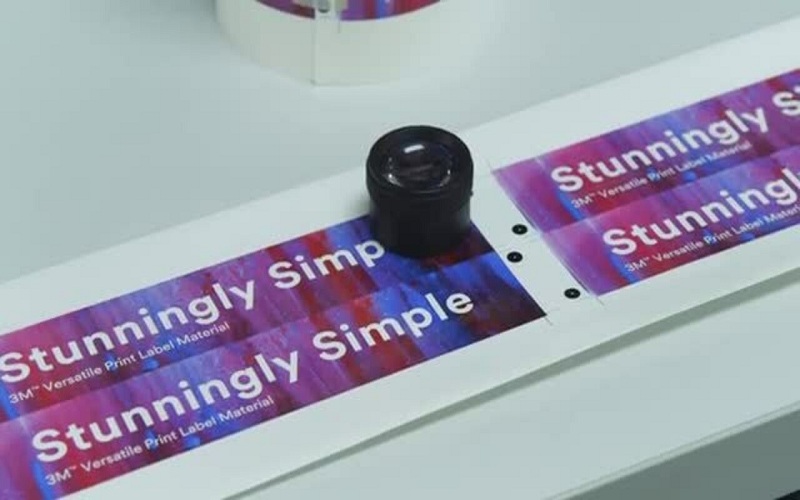Selecting a label printing business that specializes in lubricants when wanting to have labels created for your lubricant items may have a significant impact on your success. General commercial print shops lack the industry knowledge that lubricant label printing firms provide on specific materials, adhesives, compliance standards, and more. A lubricant-focused label printing business should be seriously taken into consideration when you assess partners for your future lubricant labels printing requirements in order to achieve the highest levels of quality, longevity, and regulatory compliance.
Recognize the Rules of Lubricant Labeling
A lubricant label printing firm should be chosen for the first time because of its expertise in labeling standards and laws related to this intricate product category. Lubricants must be labeled with extra information on technical specifications, safety data sheets, disposal guidelines, operating temperature ranges, and other topics in addition to the required elements like product identity and manufacturer contact information. Partners with extensive knowledge of the subtleties of lubricant labels in various countries guarantee that your branding and message are compliant right away. This avoids compliance violations that later on can result in lawsuits or widespread recalls—expenses that a cosmetic label business without category-specific knowledge might unintentionally expose you to.
Obtain Sturdy, Specialty Label Products
A further significant benefit of lubricant label printing firms is their availability of very robust, specialty label materials designed to endure contact to lubricants. Lubricant labels must withstand a variety of harsh environments, including extreme friction, extreme temperature swings, oil, grease, and solvents. These environments need the use of materials that are not often found in normal digital print shops. Lubricant labelling specialists source everything from lubricant-tested acrylic and polyethylene to weather- and chemical-resistant polyesters and flexible vinyls through established supply chain partnerships. This ensures that labels maintain adhesion, integrity, and readability throughout product lifecycles—a feat that cosmetic label materials simply cannot consistently achieve.
Count on Printing Expertise Focused on Categories
Because of the variety of container materials, forms, and industrial aesthetics, lubricant labeling also has special printing requirements. Anticipate precise corporate color matching with custom blended spot colors, sturdy thermal transfer printing ideal for irregular HDPE or metal lubricant containers, and long-lasting ink anchoring. Procedures to prevent printed images or changeable QR codes from degrading too soon after being exposed to lubricant. General sticker printers prioritize ease of use above specialized durability, but lubricant label printing firms have perfected customized printing solutions that can endure solvents, friction, and frequent use. This prevents ecolabel lubricants from damaging branding efforts by preventing early application failure.
Fulfill Tight Compliance Deadlines
Maintaining label compliance in the face of changing standards is very difficult for businesses operating internationally across many countries, necessitating a high degree of agility and response from label providers. Lubricant businesses benefit greatly from the flexibility offered by lubricant label printing firms who have the infrastructure and knowledge to expedite label modifications and print/deliver revised orders measured in days rather than weeks. Relying on standard label printers without the knowledge of lubricant categories and quick turnaround times runs the danger of regulatory violations or missed sales due to product holds while updating labels.
Utilize Design Knowledge Specific to Your Category
Beyond manufacturing, lubricant label printing firms provide priceless creative know-how to produce labels that strike a balance between required technical specifications and powerful branding aesthetics. Lubricant labeling experts have mastered the delicate design refinement necessary to keep compliance information unobtrusive yet readable while highlighting brand themes. They know precisely how to use color, contrast, grouping, spacing, font, and other elements for maximum visibility and a visually pleasing look.
Obtain Equipment for Applying Durable Labels
Only when correctly applied—which is frequently complicated by lubrication conditions with dampness and uneven and textured surfaces—do the promises of lasting labels really materialize. Here, too, lubricant label printing firms use strong, oil-resistant application equipment to create solutions designed expressly to preserve adherence throughout lubricant product lifecycles. Important infrastructure to support category-specific labels is provided by pressure-sensitive label applicators, integrated systems to apply labels smoothly during filling processes, and customized dispensers for dependable manual application. Labels fail too soon if application equipment isn’t designed with lubricants in mind.
To Get Better Understanding of Category Understanding
In addition to converting empty containers into visually beautiful and informative product packaging, knowledgeable lubricant label printing firms provide their clients priceless industry insights that help them maintain a competitive edge. Lubricant companies are able to strategically allocate their spending in R&D and marketing thanks to their exposure to innovations, trends, and pain concerns across significant players. Strategic decision-making is swiftly informed by knowing what durable material upgrades and label content rivals are currently testing. The only organizations that can provide this further category enhancement advantage beyond stickers are deeply ingrained label printing companies that are only focused on lubricants.
Get Extra Product Labeling Accessible
Lubricant label printing firms provide specialized labeling for secondary packing, such as cases or pails, which are subjected to lubricants during storage and transportation, in addition to main containers. By using the same sturdy label materials as the main container, you can prevent label detachment problems during distribution and preserve branding coherence. These collaborators turn become useful one-stop labeling suppliers. Single-vendor labeling greatly simplifies logistics as compared to using several vendors for main and secondary packaging components.
Make Cross-Border Compliance Simpler
Global lubricant businesses face even more regulatory complexity, with sophisticated standards that vary greatly across countries. Lubricant labeling firms with integrated global supply chains ease compliance rather than trying to internally master every standard in the globe or working with smaller regional label printers that are hard to audit with any degree of reliability. Standardization is made possible by centrally regulated labeling, ensuring that essential compositions adhere to international laws. Refinements in localization print easily as required, avoiding compliance problems with loosely managed partners. As a consequence of regulatory labeling knowledge, new markets may be entered more quickly and with less risk.
In summary
Selecting a specialist food product label maker over more generic sticker printers pays well in terms of regulatory conformance, exceptional durability, and quick response when looking into lubricant label companies for lubricant product identification. In the long run, working with label specialists who are well-versed in the unique compliance regulations, challenging operating environments, and aesthetics around lubricant labeling will result in fewer difficulties, reduced risks, and more benefits for your lubricant brand. Lubricant businesses need partners that are equally committed to and exceptionally competent of guaranteeing labeling success in this very demanding product category via customized solutions, as there is a great deal at stake in terms of customer safety and brand reputation.




